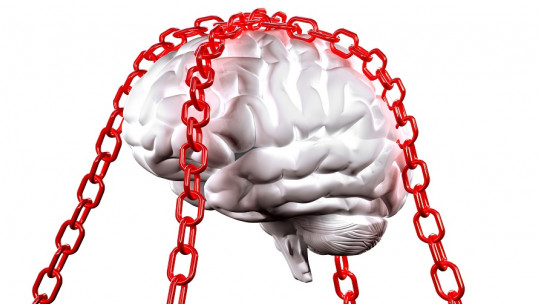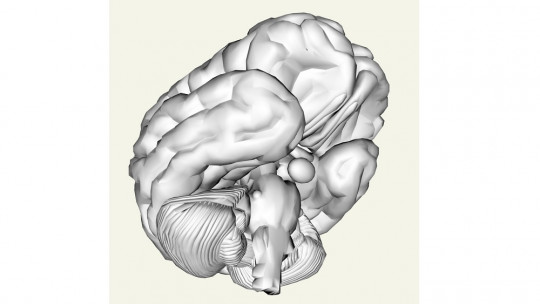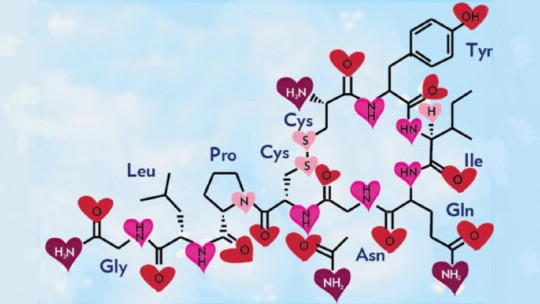
We have all gone through a stressful period at some point. It may be due to causes related to studies or work, due to arguments with other people or due to other unavoidable situations in life. This situational stress is natural, but when it persists for too long, it causes other problems.
When we are stressed, we sometimes become more irascible and have a hard time empathizing with other people, or we don’t feel like seeing anyone and having to deal with a social situation. And why does this happen? In this article I answer your question, telling you which hormones are involved and their relationship with each other, and how to lower cortisol and increase oxytocin.
What are cortisol and oxytocin?
Both cortisol and oxytocin are hormones and neurotransmitters that our body produces in specific situations, in order to adapt to it and ensure our well-being. However, both appear in different situations and differ in their functions, despite having a relationship between the two.
Cortisol: the stress hormone
Cortisol is known as the stress hormone, since it is produced by the adrenal glands in stressful situations that seem dangerous to our well-being. This hormone puts us in a state of alert, that is, it stresses us and prepares us for a fight-flight reaction in the face of any danger that has arisen.
It does this by raising blood glucose levels to increase energy, increasing blood pressure and promoting blood flow to the organs necessary for the fight-flight response, such as the heart, brain, lungs and muscles. This means the alteration of the normal functioning of organs not involved in this response (such as the digestive system or the immune system), since it leaves them in the background.
Although cortisol-induced stress may be unpleasant, it is completely necessary and serves an adaptive function. Stress is an indication that something bad is happening or is going to happen, warning us and preparing us to avoid or resolve the situation. However, High levels of cortisol for a long time can cause significant damage to our physical and mental health.
On the one hand, a permanent state of alert causes cardiovascular problems, sleep difficulties and fatigue due to high glucose expenditure. On the other hand, cortisol alters the immune system, which can cause allergies or autoimmune diseases, as well as irritation, inflammation and poor functioning of the digestive system, which can lead to related diseases. As for psychological problems, feeling stressed for so many days in a row can lead to anxiety or depression disorders.
Oxytocin: the love hormone
Oxytocin is a neurotransmitter that works as a hormone by also being released into the blood system. It is present in all mammals and its function is to create an emotional bond with other beings of the same species, in order to ensure their survival through the protection and care of each other. This includes the maternal instinct that many species have.
That is why it is commonly known as the love hormone, and it is responsible for us feeling affection, falling in love, empathy and affection. Their levels increase when we are with people we like and are familiar with, even more so if we have physical contact with them, such as hugging them, caressing them, shaking their hands or kissing them. Oxytocin is even involved in remembering and recognizing your faces.
At the same time, it is a sexual hormone, since its levels increase during sex, especially at the time of orgasm. It is also involved in key processes of motherhood, since it is the hormone responsible for inducing labor. In addition, it promotes attachment to the baby and causes the ejection of breast milk.
Oxytocin deficiencies create psychological problems, mainly mood problems, such as major depression. It also hinders empathy and emotional understanding towards others, which can cause social interaction problems.
How are cortisol and oxytocin related to each other?
It has been discovered in recent years that when cortisol levels increase, oxytocin levels decrease. In the same way, the opposite happens: when oxytocin levels rise, cortisol levels fall. This explains why when we are stressed, we become less empathetic and perhaps less eager to interact with people. Likewise, it is now understood why leaning on our loved ones helps us reduce our stress.
In view of this relationship between the two hormones, we can make it work in our favor. By promoting situations in which we are going to develop oxytocin, we can reduce our cortisol. So we can increase our well-being and reduce stress sustained over time. And how can I then lower cortisol and increase oxytocin?
How can I lower cortisol and raise oxytocin?
Very easy: relating to our loved ones. At first, it can be difficult for us because we don’t feel like seeing anyone due to stress. However, it is important to keep in mind the relationship between stress and our attachment to others to motivate us to relate to our environment. Love and support will help us feel better. Here I leave you a couple of ideas to achieve it.
1. Adopt a pet and take care of it responsibly
Oxytocin is not a hormone exclusive to humans, but we have it in common with other mammals. And not only that: Oxytocin is not only secreted with members of our species, but goes further and we can generate an emotional bond with other mammals, just as strong as if it were with a human. Specifically, a caregiver-child style relationship is created, similar to what would be a father/mother-child. This is bilateral, since these animals also feel this bond with us.
Therefore, one way to lower cortisol and increase oxytocin is to have a pet (preferably a mammal, so that oxytocin is mutual). Stroking and being in contact with our furry little one will make us feel better. Furthermore, their affection is usually unconditional (especially if it is a dog), as long as we treat them well, and they will show it to us through their own company, licking and leaning on us. Be careful not to give too many hugs, it is not something they particularly like.
2. Have contact more often and take care of your loved ones
Staying with your loved ones can help you reduce your stress. And when I put “contact” in the title, I mean literally: Skin-to-skin contact is one of the best ways to increase your oxytocin levels. Hug them, shake hands, give each other kisses… Whatever you want and the relationship allows you. Even one method to increase oxytocin would be to have sex, and even more so if you reach orgasm. You decide who you want to do it with.
Aside from skin-to-skin, you can also foster bonding through dialogue and other forms of affection. Vent your frustrations with them, allow them to support you and let yourself be loved. To this we add that we can secrete more oxytocin if we also respond to them reciprocally: showing empathy, listening to them and supporting them will allow us to lower cortisol and increase oxytocin, so that we will feel better about ourselves.
3. Help, have altruistic behaviors.
Oxytocin is present in situations when there is empathy, trust and altruism; It is proven that it increases when you have the opportunity to help someone and you help them.
4. Meditation and prayer
Depression and anxiety, the two great diseases of the 21st century. Meditation and prayer help us disconnect from depression or anxiety by providing us with moments of calm, inner peace and hope.
5. Exercise
Ancestral practices such as Yoga and Tai Chi They help us through their postures to concentrate on the present, they disconnect us from the circumstances that make our cortisol rise.
6. Regulate our mood:
Happiness consists of connecting in a healthy and balanced way with the present, having overcome the wounds of the past and looking forward to the future. We have forgotten to live in the present and this is where many things happen. Let us remember that happiness is not what happens to us, but how we interpret what happens to us.








